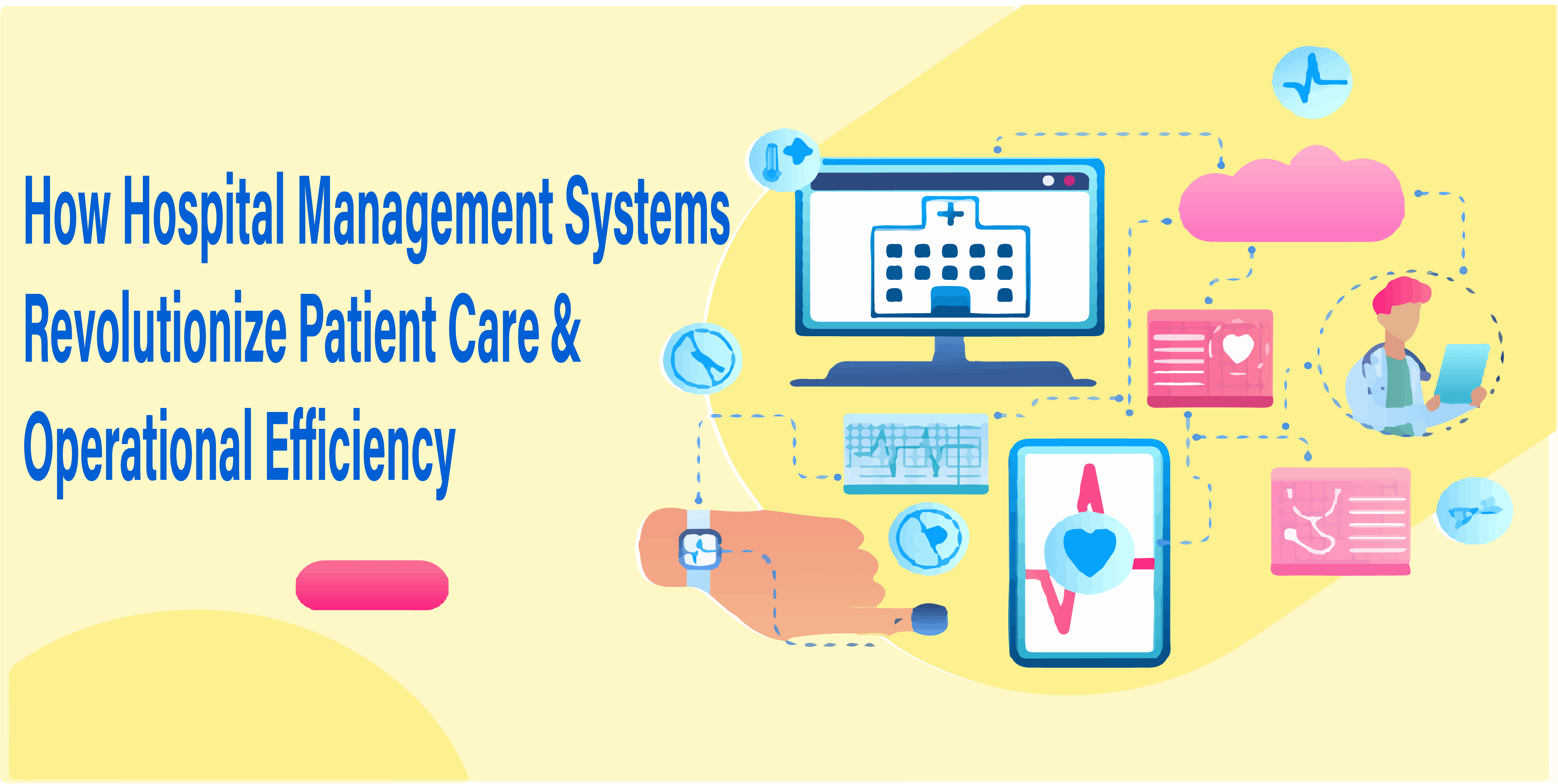In the dynamic world of healthcare, hospitals face the dual challenge of improving patient outcomes while optimizing operational efficiency. The need for seamless processes and accurate data management has never been more critical. This is where a Hospital Management System (HMS) comes into play. By integrating technology into healthcare administration, HMS revolutionizes both patient care and operational workflows.
What is a Hospital Management System (HMS)
A Hospital Management System is a comprehensive software solution designed to manage various hospital operations such as patient records, appointment scheduling, billing, inventory, and more. By centralizing data and automating processes, HMS creates a streamlined approach to hospital management.

How HMS Enhances Patient Care
- Streamlined Appointment Scheduling
HMS allows patients to book appointments online, reducing wait times and improving accessibility. Doctors can view their schedules and manage appointments effortlessly, leading to better time management and patient satisfaction. - Centralized Patient Records
With HMS, patient data—medical history, prescriptions, diagnostic reports—are stored digitally and securely. This centralized access enables doctors to make informed decisions quickly, enhancing the quality of care. - Improved Communication Among Departments
HMS ensures that all hospital departments, including labs, pharmacies, and wards, are interconnected. This seamless communication prevents delays and errors, resulting in faster and more effective treatments. - Patient Portal Features
Many HMS solutions include patient portals where individuals can access their health records, test results, and billing information. This transparency empowers patients to take an active role in their healthcare journey. - Faster Diagnostics and Treatment
By integrating laboratory and diagnostic management system, HMS speeds up the diagnostic process. Test results are directly uploaded to the system, enabling quick analysis and faster treatment decisions.

How HMS Boosts Operational Efficiency
- Automation of Administrative Tasks
Routine tasks such as billing, admissions, and discharge processes are automated, reducing the workload on hospital staff. This allows them to focus more on patient care rather than administrative duties. - Inventory Management
HMS keeps track of medical supplies, medications, and equipment. Automated alerts for low stock levels ensure that the hospital is always prepared, minimizing disruptions in patient care. - Real-Time Reporting and Analytics
HMS provides real-time data insights into hospital operations, including patient flow, revenue, and resource utilization. These analytics help administrators make data-driven decisions to improve efficiency. - Enhanced Billing and Insurance Management
Billing errors and delays can create dissatisfaction among patients. HMS automates the billing process and integrates insurance claims, ensuring accurate and timely payments. - Compliance and Regulatory Support
Keeping up with healthcare regulations can be challenging. HMS helps hospitals stay compliant by automating record-keeping and generating reports as per regulatory standards.

Key Benefits of Implementing an HMS
- Increased Productivity: Automating tasks reduces manual errors and improves staff efficiency.
- Cost Savings: Streamlined operations reduce overhead costs and improve resource allocation.
- Enhanced Patient Satisfaction: Faster, transparent, and accurate services lead to happier patients.
- Scalability: An HMS can grow with the hospital, accommodating more patients and services over time.
- Data Security: Advanced encryption and access control ensure that sensitive patient information remains protected.
Real-World Example: HMS in Action
Consider a hospital that previously relied on manual processes for managing patient records, appointments, and billing. The introduction of an HMS transformed its operations:
- Appointments are now scheduled online, reducing queues.
- Doctors access patient histories instantly, enabling faster decision-making.
- Billing errors have decreased significantly, enhancing patient trust.
- Inventory is monitored in real-time, ensuring no disruptions in treatment due to stock shortages.
The Future of Hospital Management Systems
As technology evolves, HMS solutions are incorporating advanced features such as:
- AI-Powered Diagnostics: Using artificial intelligence to assist in faster and more accurate diagnoses.
- Telemedicine Integration: Enabling virtual consultations and remote patient monitoring.
- IoT Devices: Real-time tracking of medical equipment and patient vitals.
These advancements promise even greater efficiency and better patient outcomes in the coming years.
Medicure-The Best HMS Solution by Mediasoft
If you’re looking for an HMS that incorporates all the essential features discussed above, Medicure by Mediasoft is the perfect choice. Designed with hospitals’ specific needs in mind, Medicure provides:
- Comprehensive patient record management
- Real-time analytics and reporting
- Seamless appointment scheduling
- Automated billing and insurance integration
- Advanced inventory and supply chain management
Medicure stands out as an industry-leading solution, trusted by healthcare providers for its reliability, scalability, and ease of use.
Conclusion
A Hospital Management System is no longer a luxury but a necessity for modern healthcare facilities. By revolutionizing patient care and operational workflows, HMS ensures that hospitals can meet the ever-growing demands of the industry. With Medicure, you get a cutting-edge solution designed to optimize every aspect of hospital management, ensuring world-class patient care and operational excellence.
Ready to transform your hospital’s operations? Choose Medicure today and experience the future of healthcare management.












